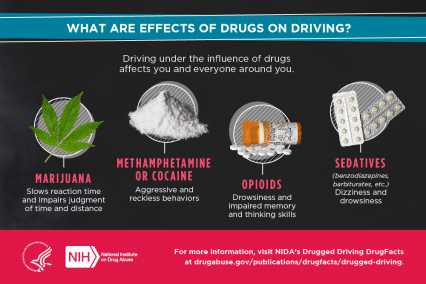

How do I know if my teen or young adult has a substance use disorder?
Addiction can happen at any age, but it usually starts when a person is young. Teens who continue to use drugs despite harmful consequences could be addicted.
When adolescents start behaving differently for no apparent reason—such as acting withdrawn, frequently tired or depressed, or hostile—it could be a sign they are developing a drug-related problem. Parents and others may overlook such signs, believing them to be a normal part of puberty. Other signs include:
- a change in peer group
- carelessness with grooming
- decline in academic performance
- missing classes or skipping school
- loss of interest in favorite activities
- trouble in school or with the law
- changes in eating or sleeping habits
- deteriorating relationships with family members and friends
Anyone Can Become Addicted to Drugs
Through scientific advances, we know more than ever before about how drugs work in the brain. We also know that addiction can be successfully treated to help young people stop using drugs and lead productive lives. Intervening early when you first spot signs of drug use in your teen is critical; don’t wait for your teen to become addicted before you seek help. However, if a teen is addicted, treatment is the next step.
See NIDA's video: Anyone Can Become Addicted to Drugs.
Why can't some teens stop using drugs on their own?
Repeated drug use changes the brain. Brain imaging studies of people with drug addictions show changes in areas of the brain that are critical to judgment, decision-making, learning and memory, and behavior control. Quitting is difficult, even for those who feel ready. NIDA has an excellent video that explains why drugs are so hard to quit.
See NIDA's video: Why Are Drugs So Hard to Quit?.
It could be helpful to show your teen this video. It helps explain why the inability to stop using drugs is not a moral failing, but rather an illness that needs to be treated.
If my child refuses to cooperate, should the family conduct an intervention?
Most teens, and many young adults still being supported by their family, only enter treatment when they are compelled to by the pressure of their family, the juvenile justice, or other court system. However, there is no evidence that confrontational "interventions" like those familiar from TV programs are effective. It is even possible for such confrontational encounters to escalate into violence or backfire in other ways. Instead, parents should focus on creating incentives to get the teen to a doctor. Oftentimes, young people will listen to professionals rather than family members, as the latter encounters can sometimes be driven by fear, accusations, and emotions.
People of all ages with substance use disorders live in fear of what will happen if their drugs are taken away. You can ensure your teen that professional treatment centers will keep them safe and as comfortable as possible if a detoxification process is needed. Be sure to let your teen know that family and loved ones will stand by and offer loving support.
How do we keep things stable in our home until my teen is in treatment?
First, talk to your teen. There are ways to have a conversation about drugs or other sensitive issues that will prevent escalation into an argument. NIDA’s Family Checkup tool gives science-based techniques for communicating with your child effectively without emotions getting in the way, as well as ways for setting limits and supervising your teen. Videos demonstrate the techniques discussed.
Acknowledge your child's opinions but know that many people with substance use problems are afraid and ashamed and might not always tell the truth. This is why it is important to involve medical professionals who have experience working with people struggling with substance use issues.
Second, if your teen has a driver's license, and you suspect drug use, you should take away your child's driving privileges. This could cause an inconvenience for the family, but could prevent a tragic accident. This could also be used as an incentive to get your child to agree to be evaluated by a medical professional. For more, see our DrugFacts on drugged driving.

I have heard that teens and young adults who use drugs could be self-medicating because they feel depressed. How do we handle that problem as well?
It is very possible your child needs to find treatment for both depression and addiction. This is very common. It is called "comorbidity" or "co-occurrence" when you have more than one health problem at the same time. Parents should encourage their children to tell all of their health care providers about all of their symptoms and behaviors. There are many nonaddictive drugs that can help with depression or other mental health issues. Sometimes health care providers do not communicate with each other as well as they should, so you can be your child's advocate and make sure all relevant health care providers know about all of your child's health issues. Your child should be treated for all health issues at the same time. For more information, see Drug Facts for Teens Co-Occurring Substance Use and Other Mental Health Issues.
Note: If you ever feel so depressed that you think about hurting yourself, there is a hotline you can call: 1-800-273-TALK (8255). This is called the National Suicide Prevention Lifeline, and you can share all of your problems with them. A caring, nonjudgmental voice will be on the other end, listening.
